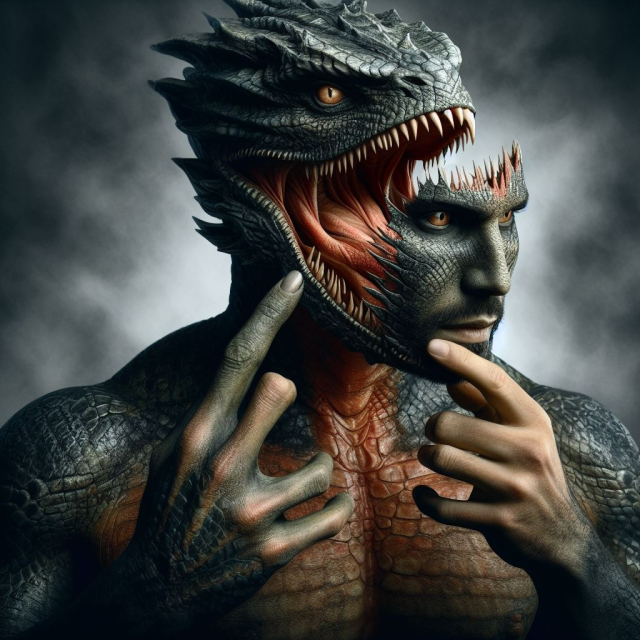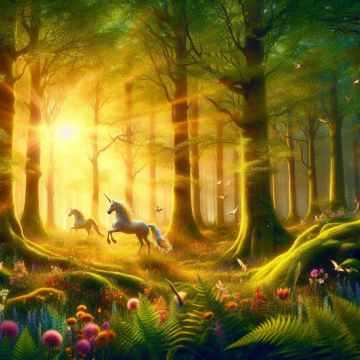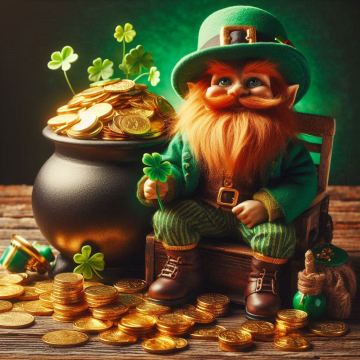Do reptilians really exist?

Belief in reptilians, humanoid beings with reptilian characteristics, has been a topic of fascination and controversy in popular culture and certain conspiracy circles for decades. This theory maintains that these beings would have infiltrated human society, occupying positions of power and manipulating the destinies of the world from the shadows. In this article, we will explore in detail the origins of this belief, analyze the alleged evidence presented in support of it, and critically examine its scientific validity and its impact on contemporary society.
Reptilians Throughout History.
Mythology and Folklore.
The idea of creatures with reptilian characteristics has ancient roots in mythologies of various cultures around the world. In Sumerian mythology, for example, there is talk of the goddess Tiamat, represented as a dragon or sea serpent. In Egyptian mythology, the serpent was associated with deities such as Ra and Set. These representations influenced beliefs about reptilians in the modern era.
Science Fiction and Popular Culture.
The notion of reptilians as extraterrestrial or interdimensional beings has been popularized in science fiction, especially in works such as the television series "V: Alien Invasion" and in the literature of authors such as HP Lovecraft and David Icke. These representations have contributed to the spread of the idea of reptilians as real entities that interact with humanity.
Conspiracy Theories and Reptilians.
Origins of the Theory.
The modern theory of reptilians as a secret elite controlling the world has its roots in the works of David Icke, a British writer and lecturer known for his ideas about global conspiracies and the influence of reptilian beings on human society. According to Icke, the reptilians are an alien race that has coexisted with humans since ancient times and now controls the major centers of power on Earth.
Public Figures and Reptilians.
An integral part of the reptilian theory is the claim that political and global elite figures are actually reptilians in disguise who occupy positions of power to manipulate and control humanity. This idea has led to speculation about the true identity of world leaders and celebrities, with conspiracy theorists pointing to alleged evidence of their true reptilian nature.
Alleged Evidence and Proof.
Testimonies and Encounters.
Proponents of the reptilian theory often cite testimonies from people who claim to have had close encounters with these beings. These accounts vary from sightings of reptilian beings to more direct encounters with entities that identify as reptilians. However, many of these testimonies lack independent verification and can be attributed to psychological experiences or hallucinations.
Images and Videos.
Another form of supposed evidence is the images and videos that are presented as proof of the existence of reptilians. These images often show anomalies in the physical appearance of public figures, such as elongated eyes or forked tongues, which are interpreted as signs of their true reptilian identity. However, most of these images can be explained by image artifacts, editing tricks, or optical illusions.
Criticism and Skepticism.
Despite the popularity of the reptilian theory in certain circles, it has been widely criticized and ridiculed by skeptics and scientists. The lack of solid, verifiable evidence, coupled with the highly speculative nature of the theory, has led many to dismiss it as a fantasy with no basis in reality. Additionally, claims that public figures are reptilians in disguise have been debunked as baseless conspiracy theories.
Exploring the Psychological Roots.
Phenomena of Beliefs.
Belief in reptilians can be understood from a psychological perspective as part of a broader phenomenon of belief in conspiracy theories and supernatural beings. Studies have shown that people tend to look for patterns and meaning in random or unexplained events, and that conspiracy theories can offer simple, comforting explanations for complex or puzzling phenomena.
Cognitive Biases.
Additionally, cognitive biases such as confirmation and availability may contribute to the acceptance of the reptilian theory. People tend to seek information that confirms their pre-existing beliefs and give more weight to information that is readily available, which can reinforce belief in conspiracy theories even when evidence is scant or contradictory.
The reptilian theory continues to be a topic of interest and debate in contemporary culture, but to date, there is no solid evidence to support its existence. While it is understandable that some people find these ideas attractive, it is important to maintain a healthy skepticism and look for solid evidence before accepting them as true. Ultimately, the reptilian theory remains an unsolved mystery in the vast landscape of conspiracy theories and paranormal beliefs.
ARTICLES

How to get over a breakup?
Through self-care, reflection, and openness to new experiences, you can heal your broken heart and open yourself to a future full of love and happiness.

How do gifts strengthen relationships?
Gifts are much more than simple material objects; They are expressions of love, generosity, gratitude and celebration that enrich our relationships.

The impact of love on life
From romantic and family relationships to friendships and social connections, love has various forms and expressions.

Magical Creatures: Unicorns
Throughout the centuries, unicorns have continued to capture the imagination and admiration of people of all ages and cultures.

Magical creatures: The elves
Elves are creatures from European mythology, whose origins date back to the ancient beliefs and superstitions of Celtic and Germanic cultures.

The meaning of dreaming about ducks
Dreaming about ducks is an experience rich in symbolism, which can provide valuable clues about our psyche and our everyday experiences.